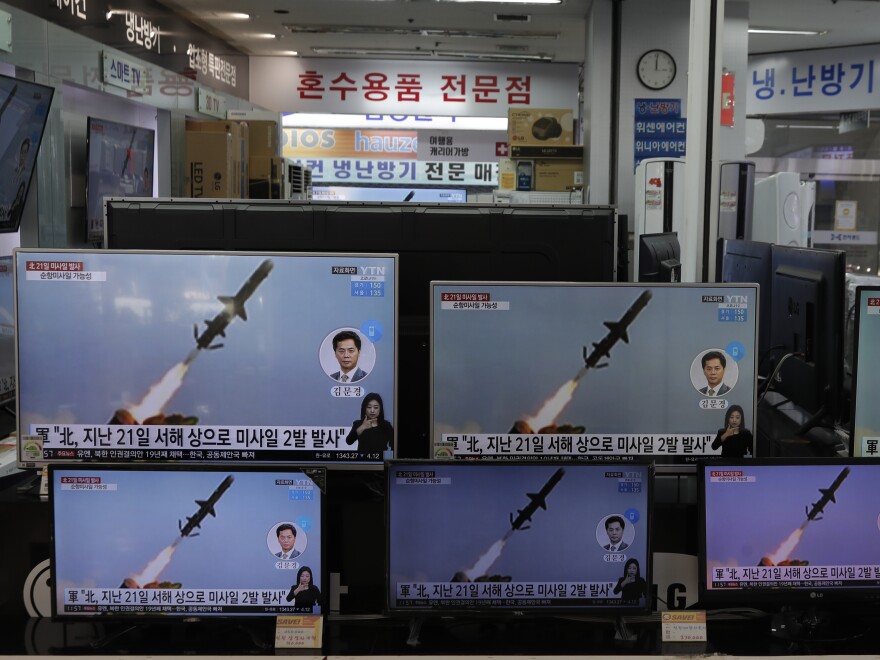North Korea launched two ballistic missiles into the Sea of Japan Thursday, in its first provocation of the Biden White House.
The missiles fell into the waters that lie between North Korea and Japan, and avoided the latter's economic zone, Japanese Prime Minister Yoshihide Suga said in a statement.
Suga condemned Pyongyang's actions and said it "threatens the peace and security of Japan and the region." He noted that North Korea's actions violate U.N. Security Council resolutions.
Thursday's launch was the first ballistic missile test since March 2020, and Suga said officials need to be "more vigilant and watchful than ever before."
先程、北朝鮮が弾道ミサイルを2発、発射しました。
— 菅 義偉 (@sugawitter) March 25, 2021
我が国と地域の平和、安全を脅かすものであり、国連決議違反です。厳重に抗議し、強く非難します。政府としては、我が国の排他的経済水域の外の日本海に落下した、と確認しています。
North Korea also tested cruise missiles over the weekend, which are not barred by the U.N. Security Council.
"According to the Defense Department, it's business as usual, there's no new wrinkle in what they did," President Biden said at the time.
The United States Indo-Pacific Command said Thursday's launch "highlights the threat that North Korea's illicit weapons program poses to its neighbors and the international community."
Hong Min, a North Korea expert at the Korea Institute for National Unification, a government think tank in Seoul, said Thursday's test likely contains both military and political objectives.
On the military side, "it's a pattern that North Korea tests missiles and multiple rocket launchers as part of its regular training in late March and early April." Politically, he said, "the test is probably aimed at seeing what the U.S. reaction is, without staging a huge provocation."
The Biden administration is still formulating its foreign policy approach to Pyongyang. Officials have refrained from taking any big steps - in any direction - toward North Korea.
It will likely be a different approach to former President Donald Trump's attempts at diplomacy with the North Korean leader Kim Jong Un. While their talks marked the first in-person meetings between leaders of the two states, the two summits led to no advancement in denuclearization on the Korean peninsula.
North Korea has made it clear it intends to continue building up its military capabilities while waiting for the U.S. to offer concessions. In a military parade in October, the North displayed what is believed to be its biggest strategic missile so far.
Hong Min said it's unclear whether Thursday's launch tested a new weapon or an existing one. If it's indeed new, state media will likely report on it Friday, he said, so that "it can send an internal message that North Korea is responding strongly against the external pressures from the U.S."
NPR's Se Eun Gong in Seoul contributed to this report.
Copyright 2021 NPR. To see more, visit https://www.npr.org.




